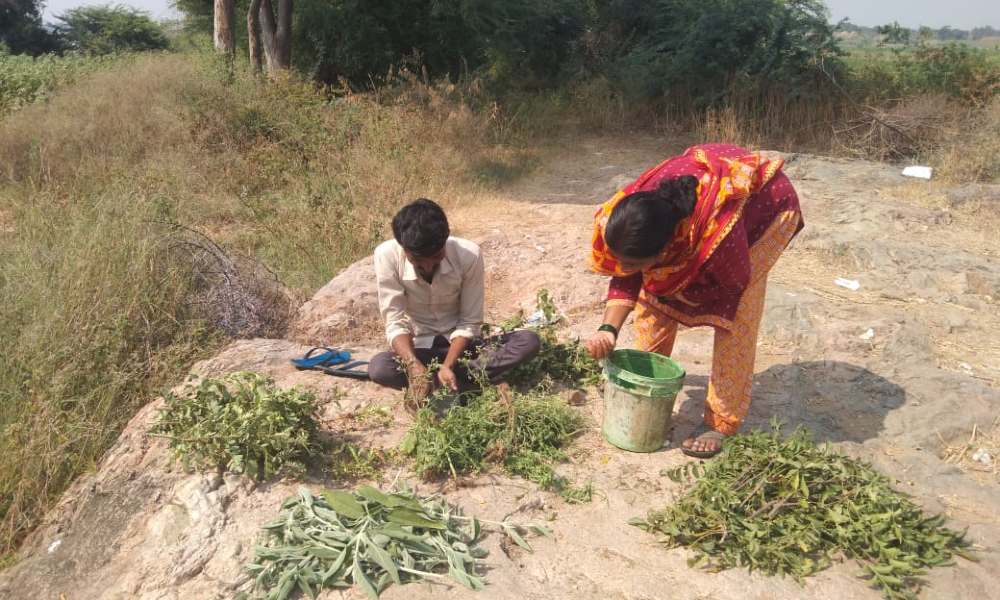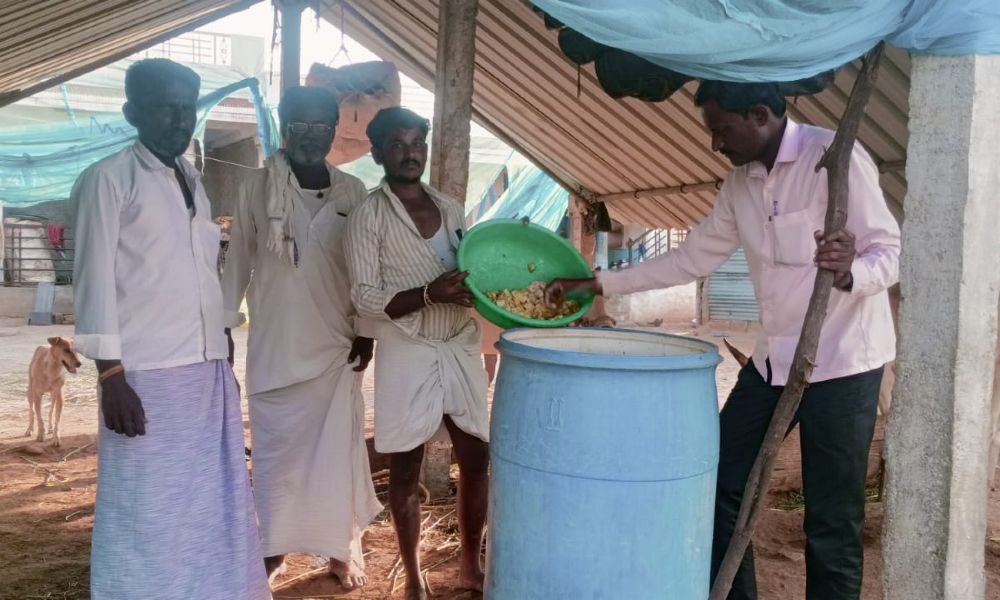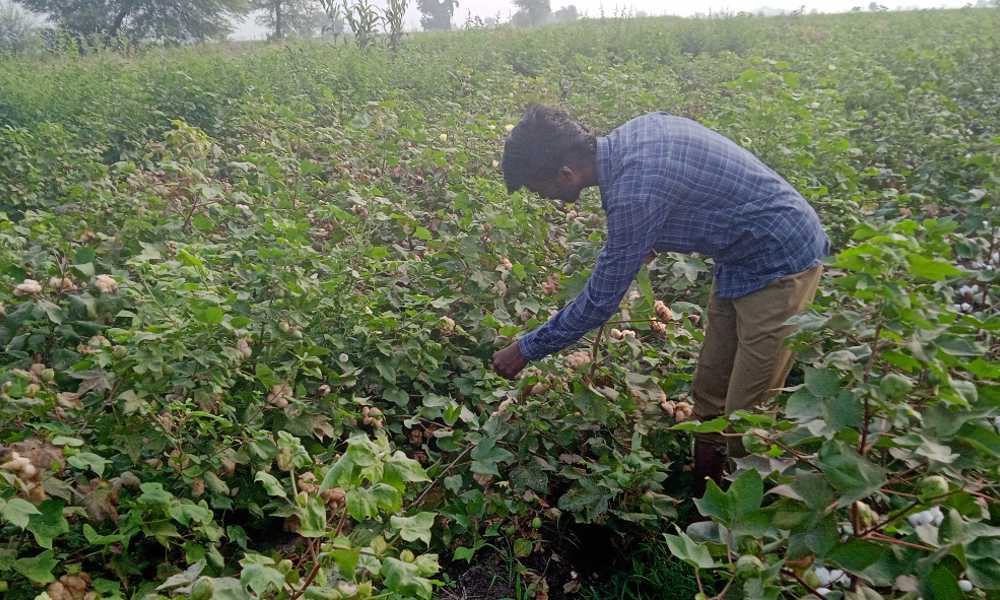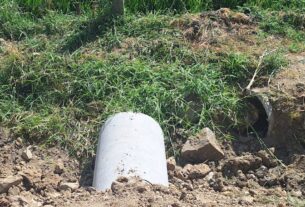Farmers have to choose between health and pestilence to sustain themselves and their families.
Devappa was not feeling well, the chilli farmer had returned home after a long day’s work. He compulsively picked at the red splotches on his arms, they were recurring irritants.
Rashes were accepted as an unavoidable consequence of farming. But this sensation was new, Devappa felt something stir in the pit of his stomach, a maelstrom of queasiness was brewing there. He clutched his gullet as he fought the urge to vomit.
Devappa has been farming in the taluk of Devadurga for the past 10 years, he provides for a family of five, having three children in the high school and middle school.
He farms chilli and pearl millet on his patch of land and sells the surplus in the wholesale market in order to supplement his livelihood.
“My crops are highly susceptible to insects and various other pests and hence, I have had to use lots of pesticides to combat them,” Devappa said.
Devappa often visited his local primary health care centre in order to address his skin diseases, he also noted having issues with hairfall and as mentioned earlier, frequently suffers from episodes of chronic nausea after spraying pesticides.
“We get 10 -15 patients a month due to pesticide inhalation and ingestion, they complain due to abdominal pain, burning eyes, We have two to three patients in a month who have respiratory failure,” said Dr Gangadhar, a doctor who works in the main Taluk hospital in Devadurga.
“We used to tell them, take precautionary measures like a mask, helmet, and so on, take rest, don’t do all the work in a single day,” Dr Gangadhar explained.
He noted that some patients had various other neurological and dermatological issues that seemed concurrent with chronic exposure to harmful chemicals present in pesticides. But he couldn’t conclusively state them to be due to pesticide poisoning due to a lack of documentation of the history of diseases of each patient.
“We have ten to fifteen patients who have life-threatening cases of pesticide poisoning and we refer them to tertiary care hospitals,” he stated.
The government of India’s department of agriculture recommends usage of “protective clothings viz., hand gloves, face masks, cap, apron, full trouser, etc. to cover whole body”. This is in order to make sure that pesticides do not enter the body through the eyes and ears, nor do they end up being ingested, absorbed through the skin or inhaled.
Experts and academics recommend using protective gear along with long sleeved clothes (in order to minimise skin exposure) for farmers who use pesticides. This gear prescribed is complex in it’s make and high in it’s costs.
The requirements in First-World countries, (where a lot of pesticides that are banned there are available for sale in India) are even more elaborate and expensive.
Fred Fishel from the department of Agronomy in University Of Missouri, USA wrote in his paper about Personal Protective Equipment (PPE) that protective gloves should be used that are made from pesticide resistant material such as butyl rubber or polyvinyl chloride.
He further advised using footwear that completely covered the feet such as shoes and socks, or in some cases where stronger pesticides are used, thick rubber boots are recommended.
Masks were also recommended by experts ranging from safety glasses to safety goggles to full-fledged respiratory masks depending on the pesticide being applied.
Dr Shivanand, the Chief Health Officer of Devadurga also echoed similar sentiments.
“Farmers are meant to wear protective masks and gloves and they don’t seem to be doing that, they seem to lack access to the equipment and the know-how on how to use it effectively,” he said.
And to avoid pesticide poisoning through skin contact, they recommend taking a bath immediately after application andwashing one’s clothes separately with liquid detergent and then further rinsing it in a washing machine with detergent and hot water.
“Most farmers cannot afford such equipment,” Devappa said.
He was unfamiliar with PPEs and was unwilling to bear the costs or put up with the inconveniences that such equipment posed to him.
“I usually cover my face with a cloth and that is the extent of the precautions I take, I tried to use a mask but my field of vision was immediately obstructed and I was unable to navigate my own field.”
Local pesticide shops in the city of Devadurga stated they weren’t selling any protective equipment separately but that they did provide protective gloves for free with their pesticides.
These “gloves” were made from thin plastic around 0.002 inches thick, whereas the required gloves are meant to be 0.02 to 0.03 inches thick and manufactured from protective rubber.
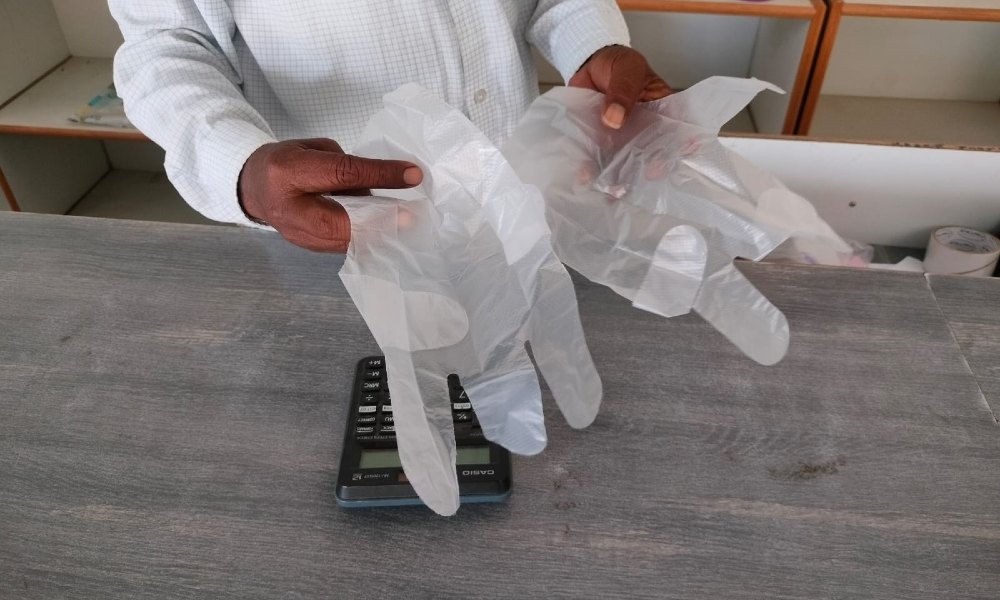
Karnataka had the third highest cases of pesticide poisoning following Maharashtra and Madhya Pradesh, according to 2015 crime statistics released by the National Crime Records Bureau.
According to government statistics from 2011, 15813 acres of the 15962 acres of land in the Devadurga district used for commercial crops, is used to grow cotton. 57.6 percent of the district’s soil is black soil, which is what is used to grow cotton.
The city of Devadurga is filled with large factories of cotton that have workers toiling away, transporting and processing mountains of harvested cotton.
The streets are littered with strings and spools of cotton that fly out from the factories and nestle into the roads.
Agricultural labourers can be spotted in open areas, drying their harvest of red chillies and preparing them to be sold in the open markets.
“Cotton and chilli are the most common crops grown in Devadurga,” said Rajesh the project coordinator for Dharmasthala, a network of NGOs whose main objective is to empower the rural community.
According to Rajesh, small farmers and landless labourers are the most frequent victims of pesticide poisoning.
“ Most of the larger plots of land are cultivated by rich landowners who live in Hyderabad and Maharashtra, far away from Devadurga,” he said.
These landowners do not have to pay the price in the form of deteriorating health for cultivating the crops and employ sophisticated technology to ensure minimal poisoning.
“They hire people to fly drones that dust the crops with pesticides. They don’t come into contact with any of those chemicals,” he explained.
Recently, ‘Le Monde’ a French news publication published a report about pesticides, alleging that ‘no amount of pesticide protection’ could keep farmers safe from pesticide poisoning.
It cited a report by agricultural ergonomist Alain Gargou that was created in collaboration with other agricultural scientists which stated that even the chemical-resistant coveralls and aprons used to protect farmers from poisoning had high rates of permeability and in fact made it more dangerous for farmers to wear them while they spray pesticides.
There are also various issues related to bio-accumulation, wherein pesticides used to grow crops accumulate in human bodies and cause risks of acute damage to the health of humans and the health of their offspring.
Farmers find it hard to switch to organic farming due to high cost and low yields.
“Organic farming is excellent for the soil and incredibly susitainable but we find it difficult to switch over due to lack of the required yields as well as high pestilence issues with organic crops,” Devappa said.
There are non-governmental organizations in Devdaurga who focus on helping farmers transition into sustainable agriculture that reduce the issues with lower yields as well as biomagnification. One such organization is Prarambha which trains farmers in Devadurga to engage in sustainable agriculture.
Established in 1985, Prarambha is a social development organisation that states that it’s goal is to empower those who are socio-economically disadvantaged such as farmers, the rural unemployed, manual scavengers and those who are most likely to be affected the most by natural disasters.
In Devadurga, Prarambha has set-up systematic agricultural training programmes where farmers are taught sustainable agriculture that helps keep their soil healthy, their output profitable and their produce substantially non-toxic.
“In our programmes farmers come together and learn by doing,” Saravanan, the head of the local program, said.
Saravanan said that the organization noticed that farmers tended to use pesticides without proper knowledge and mismanage their irrigation and overuse pesticides which had a detrimental effect on soil health and the safety of their produce when it came to human consumption.
“With the setup of the Narayanapura project, the irrigated area is growing, this lead farmers to purusue high input agriculture with the usage of a lot of fertilizers and pesticides,” he said.
The programme trains farmers to gradually shift their methods of farming with the end goal of weaning them off of using chemical pesticides.
“We start off by encouraging farmers to use the normal amount as required, based on our assessments of the needs of their crop, we then have them move on from there and use mixed cropping techniques and pest control substances that we formulate using purely organic components,” Saravanan explained.
He stated that starting them off immediately with organic farming would have detrimental impact on their livelihood.
“The average piece of land is four acres and only a part of is aerated, we need them to address the imbalanced nutrition in their crop land before they can adopt such practices,” he said.
Pradeep, the executive trustee of the organization, stated the farmers are able to get the same amount of produce but at 25 percent less cost.
Prarambha has formed many farmer committees that hold review meetings once in a fortnight to measure the farmer’s progress.
“We work with both mainstream farmers and small and marginal ones, and we currently have them growing paddy and groundnut crops sustainably and organically, we also introduced a new variety of cotton and we’re working on introducing completely organic chilli farming,” Saravanan said.
The trust is currently working with 12 chilli farmers, 150 groundnut farmers and 300 paddy farmers.
They primarily use seeds that are not genetically modified.
“ Our non GMO seeds tend to perform on par with and in some cases, much better than the genetically modified high yield variety (HYV) seeds,” said Pradeep.
In cases of cotton growing they have made an exception and introduced a variety of coloured brown cotton for the farmers to grow which is similar to the well known ‘bt cotton’, a strain of GMO cotton crop that naturally produces a bacteria known as ‘Bacillusthuringiensis, this bacteria acts as a natural insecticide for the larvae of moths, butterflies, beetles and flies.
The NGO also substitutes chemical fertilizers with organic ‘growth promoters’ made from cattle dung and cattle urine.
“The microbes present in the growth promoter benefits plant growth and fights against disease-causing micro-organisms,” Saravanan said.
Prarambha is committed towards maintaining a non-pesticidal approach to crop management due to concerns arising from poisoning and biomagnification.
“When required, we prescribe pest repellants made from herbal leaves, we are not in favour of the widespread use of synthetic pesticides that make their way into the food chain,” Pradeep said.
Pradeep also has ambitions for expanding the programme if and when the trust receives further funds.
But for now, the programme is helping around 500 farmers.
The many that are either unaware or unable to participate in it, continue to struggle with the fatal risks that come from farming with pesticides.
Local doctors have persistently advised the farmers to engage in moderate use of pesticides but encounter a lot of resistance to the idea due to their anxieties of getting lower yields.
“They are aware of the risks but they use them despite being fully aware of them,” Dr Gangadhar said.
He said that pesticides have high toxicity levels and steps need to be taken by the government to regulate the toxicity levels. And that there should be education and awareness campaigns in order to sensitize and protect farmers from poisoning.
“ There should be Information, Education and Communication (IEC) programmes, I can only treat so many patients and speak to so many individuals,” Dr Gangadhar stated.



